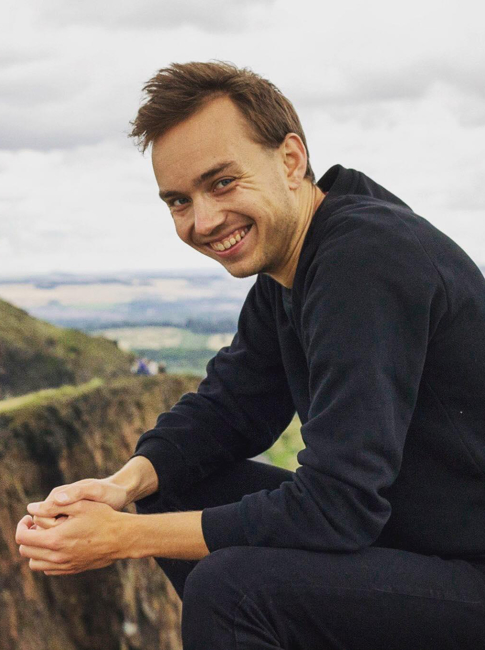Axel Vikström

Axel came from Finland and graduated from the MSc programme in 2018. He is currently a PhD student at Örebro University with a project that picks up where his master's left off. Axel plans to stay in academia and continue working on the topic of economic inequality from an array of different perspectives.
What Made You Choose this Programme and Lund University?
My decision to enrol in the Master’s Programme in Media and Communication Studies at Lund University was due to a feeling as good as any: frustration. Having previously completed a degree in Journalism and spent some time working as a reporter, I repeatedly found myself disillusioned by realizing how little time and resources the media industry seemed to allocate to producing journalism that actually felt meaningful and critical of socioeconomic injustices. How impossible it seemed to question the fabric of society from behind your news desk. Since I was not quite able to put my finger on why this was the case, I decided to enrol in the program with the ambition of developing a critical mindset for observing and analysing the news media.
Looking Back, How Would You Describe Your Experience?
It is with fondness that I look back at my five years at Lund University. I especially enjoyed the down-to-earth relationship between teachers and students, and how I from day one felt encouraged to question any assumption I might have had about the workings of the world. I was also glad that we, throughout the programme, were allowed to apply theories and methods to case studies according to our personal interests (mine spanning from the mediation of Viagra to the working conditions for journalists in the Maldives). Had I not been constantly encouraged to think outside the box and locate critical research problems that actually matter to society, I would surely not today be conducting a PhD project. In that sense, the programme and the staff at KOM played a most important role in changing my drive from writing for the media into writing about the media.
What Was Your Master's Thesis On?
My thesis was titled “Silence is Golden: A Critical Discourse Analysis of the Representation of Billionaires and Economic Inequality in the Swedish News Media”. The project centred on analysing how super-rich billionaires are discursively mediated in relation to the ongoing trend of growing economic inequality. I was particularly interested in investigating whether and how the super-rich were constructed as (un)deserving their wealth, and how their visibility management towards media participation might affect the media discourse on inequality in the context of neoliberalism. The concluding argument was that the super-rich’s “struggle for invisibility” serves as an effective strategy for discursively shifting the debate on inequality away from questions of wealth possession, and that the news media appear to be more interested in gazing at the spectacle of the super-rich than critically examining them.
What Was Your Experience with Supervision and Research at the Department?
I worked very well together with my supervisor from day one. Looking back at the process, one aspect that was particularly helpful was that we immediately made a plan for the whole semester that included several deadlines. This helped me both to focus and make sure that I was writing throughout the process, and the fact that we put the deadline for the first full draft one month before the final deadline gave me a lot of valuable time to edit and rewrite. I also want to give a shout-out to The Academic Support Centre, who gave us a lot of useful advice on writing academic English.
Would You Elaborate More on Your Current PhD Research?
The focus is still the discursive mediation of the super-rich in the news media, but with four years at my command, I wish to further develop the concept of “struggles for (in)visibility” and dig deeper into neoliberal logics and the morality of wealth possession in contemporary class societies. My ambition is also to explore novel ways of how to methodologically locate meaningful absences and silences in the media discourse, an aspect that, until recently, has received rather minor attention within Critical Discourse Studies. Considering that the topic of extreme wealth lately has become a more prominent feature in the political debate, I am excited about which turns the project might take during the upcoming years.
What Advice Would You Give Current and Future Students in the Programme?
Don’t get freaked out if the programme feels inexorably hard at the beginning. I came from a very practical Bachelor’s, and during the first few weeks, I felt like the readings were way above my level. But once you get into the rhythm and learn how to play around with the theories, a whole new level of thinking suddenly opens up. And that is (with the risk of sounding a tad dorky) a really cool feeling.
